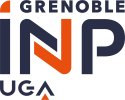Subject and context:
The candidate will work in the frame of the MATHEEIAS project. MATTHEIAS stands for MAgneto-THermo-Electric Effects In Antiferromagnetic Spintronics. It is a collaborative international project co-funded by the French ANR and the German DFG. The project relies on the following consortium: SPINTEC Grenoble, CINaM Marseille, TUD Dresden / Uni. Konstanz, and JGU Mainz, in close collaboration with FZU & Charles Uni. Prague. The aim of the project is to identify and exploit novel mechanisms in an emerging branch of spintronics based on transport phenomena governed by intrinsic crystal and magnetic symmetries and its interplay with the antiferromagnetic order, such as the newly demonstrated macroscopic time reversal symmetry breaking arising from the antiferromagnetic Zeeman effect – arXiv:2012.15651. The project will focus on the origins of the Hall effect and its thermal and optical counterparts (Nernst and Kerr effects) arising from time-reversal symmetry breaking.
The candidate will conduct nanofabrication, magnetotransport, and spin pumping experiments to study spin and charge transport in specific antiferromagnets called Zeeman antiferromagnets and also in related superconducting / antiferromagnets hybrids.
The candidate will join the antiferromagnetic spintronics team.
The expected date of employment is 1 October 2021. Depending on experience, the contact period will be 18 to 24 months. Depending on experience, monthly gross salary will be between €2648 and €3768.
Requirements :
To apply:
Candidates should apply through the CNRS Careers Portal (https://bit.ly/3oOoEov), attaching a complete CV, a cover letter and recommendation letters.
Contact: Vincent BALTZ




